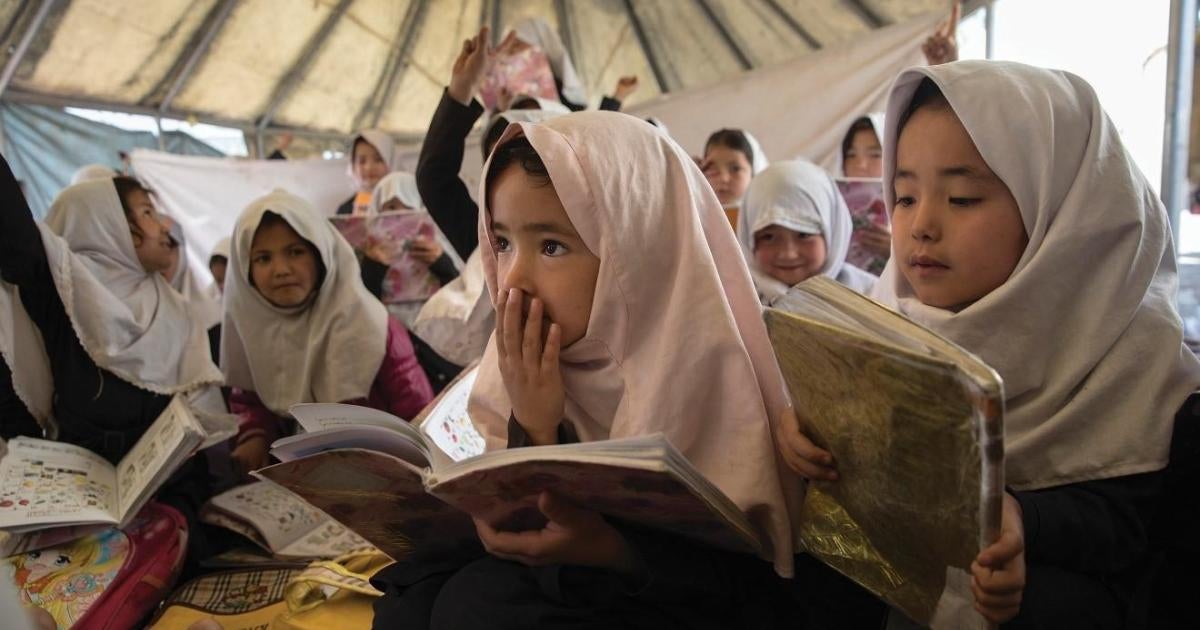
Afghanistan: Girls Struggle for an Education | Human Rights Watch
by Anam Iqbal 16 March 2023
Pakistan firmly believes that girls’ education is one of the cardinal rights of all human beings in Islam, and it is committed to promoting gender equality and women’s empowerment. Pakistan has a strong stance in support of Afghan women, particularly in ensuring their access to education, which is currently at risk due to the Taliban’s takeover of Afghanistan in August 2021.
Islam places great importance on education, and the Holy Quran encourages both men and women to seek knowledge. The Prophet Muhammad (PBUH) also emphasized the importance of education and made it obligatory for all Muslims, regardless of gender. Therefore, Pakistan strongly believes that denying girls’ education is a violation of the fundamental rights of human beings and goes against the teachings of Islam.
Pakistan’s support for girls’ education extends beyond its borders, particularly in Afghanistan. Following the Taliban’s takeover of Afghanistan in August 2021, Pakistan has been at the forefront of efforts to ensure that Afghan girls have access to education. Pakistan has provided humanitarian aid to Afghan refugees, including education and health care services. Pakistan has also been a key player in the international community’s efforts to support Afghan women’s rights and education.
Pakistan has repeatedly called on the Taliban to respect women’s rights, particularly their right to education. Pakistan’s Prime Minister has stated that the Taliban must ensure that girls have access to education and that women can participate fully in Afghan society. Pakistan has also urged the international community to support Afghan women and girls, particularly in providing access to education and protecting their fundamental rights.
The participation of women in public and political life is critical for the future of Afghanistan. Afghan women have faced numerous challenges in accessing education, healthcare, and political participation, particularly under the Taliban’s previous regime. However, with the recent Taliban takeover of the country, the situation for Afghan women is even more precarious, and their participation in public and political life is in serious jeopardy.
The participation of women in public and political life is essential for a healthy and functioning democracy. It ensures that women’s voices are heard and their interests are represented in policymaking processes. Moreover, women’s participation in public life can lead to the development of policies that benefit both men and women, such as improving access to education and healthcare.
Despite the numerous challenges that Afghan women have faced in accessing education and participating in politics, they have made significant progress over the past two decades. Women have held important positions in government, including serving as ministers, members of parliament, and ambassadors. Women have also played a critical role in the peace process, advocating for the inclusion of women’s voices and interests in peace negotiations.
However, with the Taliban’s recent takeover of the country, the situation for Afghan women is uncertain. The Taliban have a history of denying women’s rights and imposing strict gender segregation and dress codes. The Taliban’s track record on women’s rights has raised concerns about the future of Afghan women’s participation in public and political life.
The international community must take concrete steps to support Afghan women’s participation in public and political life. This includes providing support for women’s education, healthcare, and economic empowerment, as well as advocating for women’s inclusion in peace negotiations and political decision-making processes. It is essential to ensure that Afghan women have access to safe and inclusive spaces to participate in public life and that their fundamental rights are protected.
Pakistan firmly believes that girls’ education is one of the cardinal rights of all human beings in Islam, and it is committed to promoting gender equality and women’s empowerment. Pakistan’s stance in support of Afghan women and their right to education is a testament to its commitment to promoting human rights and dignity, particularly for women and girls.
The international community must work together with Pakistan to ensure that Afghan women have access to education and that their fundamental rights are protected. Only then can we build a more just and equitable society where all human beings can fulfill their potential and contribute to the betterment of the world. Afghan women have made significant progress over the past two decades, but their participation is now in serious jeopardy. The international community must take concrete steps to support Afghan women and ensure that their fundamental rights are protected, including their right to participate in public and political life. It is only through the full inclusion and participation of women that Afghanistan can build a just and equitable society and secure a peaceful and prosperous future.
About the Author
The author is a Karachi based journalist and an independent researcher on socio-economic policy issues besides commentary on political economy. She has a Bachelor’s in Social Sciences from University of London and a Master’s in Development studies from PIDE and she can be reached at anumiqbal678@proton.me.
